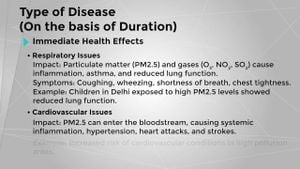Ryszard Wilk, a member of the Polish Parliament from the Konfederacja party, has been suspended indefinitely following his disruptive behavior during a recent parliamentary session. The incident, which took place on Thursday, saw Wilk appearing intoxicated, prompting action from the Speaker of the Sejm, Szymon Hołownia.
During the session, as Prime Minister Donald Tusk was addressing the body, Wilk reportedly shouted, drawing the attention of fellow parliament members and leading to reprimands from Deputy Speaker Dorota Niedziela. "Mr. Wilk, do you hear me?" she asked, attempting to regain control of the proceedings. Despite her efforts, tensions escalated, resulting in Hołownia's decision to intervene.
Hołownia firmly directed Wilk to leave the chamber, stating, "Mr. Wilk, please exit the room. Mr. Płaczek will escort you, as you seem unable to participate effectively." Subsequently, Wilk was escorted out by his fellow party member Grzegorz Płaczek, following which he publicly apologized for his actions.
"I sincerely apologize for my behavior yesterday," Wilk stated on social media the following day. He expressed his struggles with alcohol addiction, which he acknowledged had impacted his parliamentary duties. "I have been trying to address this issue, but unfortunately, those attempts have failed. I do not intend to throw in the towel; instead, I will seek therapy to confront my condition," he declared.
The incident has sparked intense discussion about the standards of conduct expected from members of parliament. Hołownia, reflecting on the event, noted the necessity of maintaining decorum within the Sejm. He announced plans to initiate measures, including potential alcohol testing for members to prevent similar occurrences, emphasizing, "There is no tolerance for misconduct. We aim to end the long-standing tradition of permitting intoxicated members on the parliamentary floor. Not on my watch."
Wilk's actions and the subsequent reactions have also brought attention to issues of addiction and mental health within the political sphere. Following his admission of battling alcoholism, both media and fellow politicians have called for more compassionate approaches to addressing such problems among lawmakers.
Grzegorz Płaczek, the head of the Konfederacja club, stated, "We will not pass over this matter lightly." He emphasized the importance of discussing the situation with Wilk before the party makes any formal decisions about his future as a member.
Wilk’s suspension has not only placed him at the center of controversy but has also highlighted broader issues within parliamentary conduct. The Speaker has announced intentions to submit a proposal for Wilk to face penalties of up to 20,000 PLN for his behavior, which adds another layer to the scrutiny surrounding him.
Both the consequences faced by Wilk and the attitudes conveyed by Hołownia evoke questions surrounding how political bodies handle personal struggles among their members, particularly those related to addiction. This incident marks another chapter in Poland’s political discourse surrounding health, responsibility, and the expectations of public officials.
Moving forward, it remains to be seen how Wilk's situation will impact the political climate within the Konfederacja party and the Sejm. Will his decision to seek help pave the way for more honest dialogue about addiction among politicians? Or will it be seen as merely a response to public backlash? Time will reveal the full consequences of this disruptive event.



